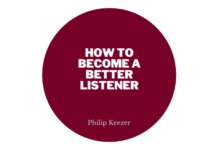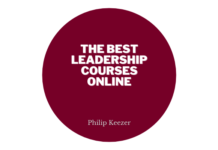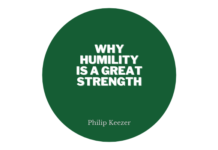Finding the right people is key to building the team you need to carry your business forwards to success. Good recruitment is essential then, and a good hiring process should feature a mix of stages including practical assignments, aptitude tests and reference checks.
Central to the process however, will be the interview, or interviews. While the interview is just one part of the process, it is still a great way to get to know a potential candidate, understand where they’re coming from and make a call on whether they’re the right fit for your team.
So what makes or breaks an interview, one that actually helps you make a hiring decision? Let’s find out.
What The Numbers Show
People need around 7 seconds to make a first impression. That means that you will get a first impression of an interviewee in the first 7 seconds. But it also takes 7 seconds for the potential employee to get a feel of the interviewer, and implicitly, the company they represent.
The move to online, which accounts for 60% of all interviews now, may change the dynamics somewhat here, time will tell. It is something both recruiters and candidates will need to adapt to however, as a convincing 81% of recruiters feel like the shift to online interviews won’t change after the pandemic.
But regardless of the medium, a few trends will be clear in the future: some of which are outlined in this article. One in particular stands out though, which is that work is a lot more fluid today than it used to be, and people are more willing to change jobs and careers throughout their working lives than were previous generations. This means people have a lot of interviews before they’re matched to a job so conducting interviews needs to be adapted to everyone, and that it needs to be efficient.
Stress Isn’t Good For Anyone
Some jobs need to stress test candidates at recruitment level. If you’re going to be a first-responder for example, managing stressful situations will be key to the role and so it’s important that people demonstrate this ability during the recruitment process.
Generally speaking however, piling on the pressure during an interview can be counter-productive. Most people are already somewhat stressed at an interview and this stress can get in the way of a candidate showcasing why they’d be a good fit with a company.
The recruitment process goes two ways. It’s about matching a company with a candidate. It shouldn’t be about gotcha moments or pitting candidates against recruiters. So anyone conducting interviews should focus on creating a welcoming environment where candidates feel comfortable opening up and answering questions effectively. This way, a recruiter can really get to know a candidate and have a conversation based on respect, rather than stress.
Listening Is Key
I’ve seen so many interviews ruined by recruiters that couldn’t stop talking about themselves or the company. Yes, these things are important. Candidates should understand what they’re getting themselves into.
But they shouldn’t be 80% of an interview.
So recruiters need to learn to listen. Ask an open-ended question, and then let the candidate answer it at their own pace, only intervening if it’s necessary.
This might seem like a small detail. But it’s one of the most important steps to conducting fantastic interviews that actually help make a hiring decision. This gives recruiters enough material to apply any other tip about interviewing better. It also gives them enough information to run the candidate’s profile against the position requirements.
Come Prepared
The best way to make the most out of an interview is to come to that interview prepared. And by this I mean first and foremost, a comprehensive list of questions. I recommend open-ended questions to start the conversation and get a good overview of the candidate. So, we can ask questions such as:
“Can you tell me more about yourself?”
“What was your experience at the XYZ workplace?”
“Where do you want to be in 5 years?”
“What do you think is your biggest strong point?”
All of these questions can be followed up for more clarifications, but they’re a good way to assess not only an applicant’s fitness for a role, but also their thought process.
Another important thing to prepare is a notebook, or some way to take notes. All candidates will try to sell themselves, and this can often lead to long-winded answers that (if they’re well exercised) can actually provide tons of valuable content. It’s important to keep all of this in mind when interviewing someone, and write it down.
Lastly, a checklist for the job position is also important. There might be times, mid-interview, when a candidate has cleared 9 out of 10 requirements. If the checklist is there with the recruiter, it’ll be easy to steer the conversation towards that last point, to gauge whether or not the candidate fits the mold.
Don’t Lose Track Of The Big Picture
Interviews help recruiters make a hiring decision. It’s a good way to understand a person at a basic level, and it’ll act as a good first step for the recruitment process. But it’s not enough. It’s crucial to corroborate information gathered in a well conducted interview with data gathered from:
- Resume and cover letter analysis
- Technical interviews
- Assignments
This large variety of information sources lets recruiters understand a candidate as much as possible. Besides this, it’s a good way to know if collaboration with a candidate will be fruitful. Interviews, technical interviews, and assignments basically emulate the real-life situations candidates would face at the job. How they act, and what kind of quality they provide can be pretty indicative of how well they’ll do at the company.
In Conclusion
Conducting an interview that actually helps you make a hiring decision is not an exact science. There’s a lot of wiggle room, and recruiters need to adapt to a candidate’s answer to truly understand who’s a good fit, and who’s not.
However, as long as they make sure stress isn’t a factor, come prepared, and listen more than talk, it’s easy to start with the right foot forward. Then, it’s a matter of being mindful and corroborating the information gathered with data from other recruitment processes, like technical interviews and assignments.













